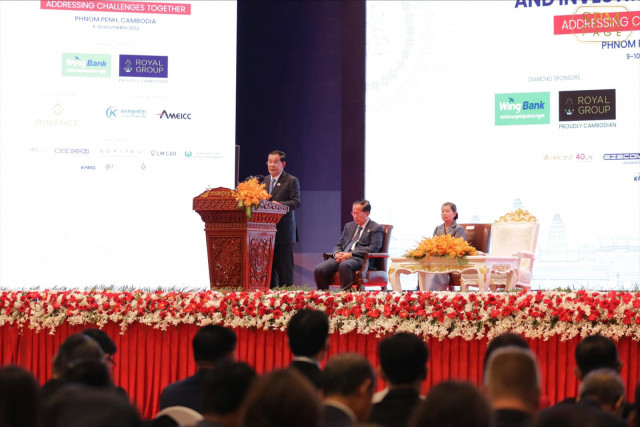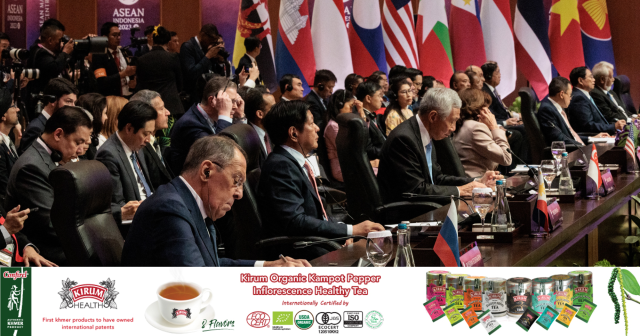North Korea’s Provocation Balloons: A Violation of Armistice Treaty and International Law

- By So Channtha
- June 15, 2024 4:30 PM
The latest incidents in which North Korea sent balloons with trash and substances into South Korean territory are dangerous for South Koreans and have made the situation in the Korean Peninsula even worse. Such an aggressive activity is a clear provocation, revealing a regime entrenched in mean-spirited and anti-humanitarian behavior, which is unimaginable for a normal country and constitutes a violation not only of the Armistice Agreement but also of international law principles of the state’s sovereignty.
North Korea has a long history of using balloons for propaganda purposes. The action of North Korea in sending balloons filled with trash and other items, as well as carrying subliminal leaflets into South Korean territories, has been provocative and inflammatory. This could affect South Korean society as it is psychologically intimidating and insecure. That is why balloons containing unknown substances can cause panic and discomfort among people and raise tension between both countries. However, the latest balloon launches are different and more aggressive in nature. Hundreds of balloons laden with dangerous materials arrived by land in South Korea across the Demilitarized Zone (DMZ) and in populated areas. This act clearly violated the Armistice Agreement that was signed in 1953 aimed at putting an end to the conflict between North Korea and South Korea.
It remains the framework of peace and stable relations for the Korean Peninsula. Moreover, the aggressive action of North Korea also violated the international principle of sovereign state. However, the North Korean regime claimed that this was an exercise of freedom of expression, which starkly reveals the level of dignity and values of North Korea. According to the Charter of the United Nations, the principles of state sovereignty and the key regulatory norms are that no one can interfere with the affairs of a state without its consent, and states cannot exercise jurisdiction over foreign states or their subjects. Countries have domestic authority to self-governance and autonomy within the demarcated geographical regions in which they are legally. It is crucial to recall that the principle underlines that states cannot undertake actions that harm other states. Thus, North Korea's scattering filth balloons carried fecal matter and other waste products onto South Korean territory, which directly violated this principle, should not be tolerated and should be firmly opposed worldwide.
The international community has condemned the aggressive move as an escalatory offense amid a long-running conflict between the two Koreas. According to a United Nations Command (UNC) press release, using these balloons is seen as a violation of the Armistice Agreement and international law. UNC noted that “[t]he DPRK [Democratic People's Republic of Korea] has repeatedly stated its desire to be treated as a responsible member of the international community, but the act of sending balloons containing fecal matter and other contaminants into a neighbor's airspace and affecting its populace is irresponsible. We condemn any violations of international law that disrupt efforts to preserve peace on the Korean Peninsula, and we encourage the DPRK to return to dialogue to deliberate these matters and other issues that present potential sources of conflict and tension." The UNC's reaction and official investigation into these incidents add another layer to the international community's alarm over such attacks.
To solve this problem, regional and global organizations such as the United Nations and its members, particularly ASEAN, which is close to the Korean Peninsula, should have a strong voice to pressure and enforce the existing sanctions against North Korea. Additionally, the international community should join hands to protect and diligently uphold the international principles of rule-based and state sovereignty. Moreover, constructive diplomatic engagement would be open to curbing these worsened tensions in order to maintain peace and stability in the region.
To sum up, North Korea’s aggressive action of launching balloons containing rubbish and toxic material in South Korean territory has escalated hostility and breached legal norms, the United Nations Charter, the Armistice Agreement, and principles of state sovereignty. The threats from North Korea have resulted in negative reactions from the international community, including the UNC. This provocation reflects the irrational and anti-humanitarian behavior of North Korea, which should be held accountable by increasing pressure and be firmly opposed globally. However, diplomatic engagement mechanisms are needed to prevent further escalation of the situation and maintain relative stability in the region.
So Channtha is a politics and international relations lecturer at several universities in Cambodia. The views expressed are his own.

















